 US President Donald Trump has signed an order imposing tariffs of 10%-50% on a range of wood and furniture products, piling pressure on Vietnam’s exports. Starting October 14, 2025, imported softwood and sawn timber will face a 10% duty, while kitchen cabinets, bathroom cabinets and upholstered furniture will be levied at 25%. From January 1, 2026, the rates will rise to 30% for upholstered items and 50% for kitchen and bathroom cabinets. Experts warn the new policy could pose major challenges to the Vietnamese wood sector. In 2024, exports totaled US$16.25 billion. Over the past eight months of this year, shipments reached US$11.1 billion, up about 6.5% year-on-year, a modest yet encouraging result. The US, Japan, the Republic of Korea, China and the EU remained the top five markets, accounting for over 80% of total export value. …beyond the tariffs, Vietnamese exporters are also facing a Section 232 investigation by the US into plywood and decorative wood.
US President Donald Trump has signed an order imposing tariffs of 10%-50% on a range of wood and furniture products, piling pressure on Vietnam’s exports. Starting October 14, 2025, imported softwood and sawn timber will face a 10% duty, while kitchen cabinets, bathroom cabinets and upholstered furniture will be levied at 25%. From January 1, 2026, the rates will rise to 30% for upholstered items and 50% for kitchen and bathroom cabinets. Experts warn the new policy could pose major challenges to the Vietnamese wood sector. In 2024, exports totaled US$16.25 billion. Over the past eight months of this year, shipments reached US$11.1 billion, up about 6.5% year-on-year, a modest yet encouraging result. The US, Japan, the Republic of Korea, China and the EU remained the top five markets, accounting for over 80% of total export value. …beyond the tariffs, Vietnamese exporters are also facing a Section 232 investigation by the US into plywood and decorative wood.
 WASHINGTON — Prime Minister Carney is set to return to Ottawa today with no deals to remove US tariffs from Canadian goods, but he’s leaving his key minister on Canada-US trade behind to keep pressing the Canadian case. US President Trump lavished praise on Carney during a meeting in the Oval Office on Tuesday and said the prime minister would walk away “very happy.” The president showed no signs of relenting on tariffs, however, and no deal was announced. Carney was scheduled to have a working breakfast this morning with Joshua Bolten, CEO of the Business Roundtable, while Foreign Affairs Minister Anita Anand was set to meet with Secretary of State Marco Rubio. Canada-US Trade Minister Dominic LeBlanc will be staying behind in Washington. LeBlanc told reporters Tuesday that substantial progress was made in the White House talks this week.
WASHINGTON — Prime Minister Carney is set to return to Ottawa today with no deals to remove US tariffs from Canadian goods, but he’s leaving his key minister on Canada-US trade behind to keep pressing the Canadian case. US President Trump lavished praise on Carney during a meeting in the Oval Office on Tuesday and said the prime minister would walk away “very happy.” The president showed no signs of relenting on tariffs, however, and no deal was announced. Carney was scheduled to have a working breakfast this morning with Joshua Bolten, CEO of the Business Roundtable, while Foreign Affairs Minister Anita Anand was set to meet with Secretary of State Marco Rubio. Canada-US Trade Minister Dominic LeBlanc will be staying behind in Washington. LeBlanc told reporters Tuesday that substantial progress was made in the White House talks this week.
 TORONTO – United Steelworkers union National Director Marty Warren issued the following statement as Prime Minister Mark Carney travels to Washington, D.C., to meet with US President Trump. …“Canada’s softwood lumber industry is on the brink of collapse. Thousands of workers and entire communities are hanging by a thread while Trump’s tariffs deindustrialize our economy and threaten good jobs across the country. We need urgent action – not more concessions. If free and fair trade in strategic sectors cannot be restored, the federal government must be ready to retaliate and take all necessary measures to protect the integrity of Canadian industrial production and employment. …We cannot allow foreign producers to use Canada as a back door for cheap, dirty, or diverted imports. …If Washington wants access to our market, it must come with respect for fair trade and for the workers who keep our economy running.”
TORONTO – United Steelworkers union National Director Marty Warren issued the following statement as Prime Minister Mark Carney travels to Washington, D.C., to meet with US President Trump. …“Canada’s softwood lumber industry is on the brink of collapse. Thousands of workers and entire communities are hanging by a thread while Trump’s tariffs deindustrialize our economy and threaten good jobs across the country. We need urgent action – not more concessions. If free and fair trade in strategic sectors cannot be restored, the federal government must be ready to retaliate and take all necessary measures to protect the integrity of Canadian industrial production and employment. …We cannot allow foreign producers to use Canada as a back door for cheap, dirty, or diverted imports. …If Washington wants access to our market, it must come with respect for fair trade and for the workers who keep our economy running.”
 The Canadian Lumber Trade Alliance (CLTA) issued the following statement. …Luc Theriault, President, Wood Products at Domtar and Co-Chair of the Canadian Lumber Trade Alliance, said “The U.S. government’s decision to impose a further 10% tariff – on top of existing duties of 35% – is disappointing. These measures unjustly punish Canadian producers, while also driving up costs for our neighbors in the US.” …“Canadian lumber does not pose a national security risk to the United States. Our industry directly supports 200,000 jobs and sustains over 300 forest-dependent communities across Canada. We will continue to work closely with the Government of Canada to defend against these unfortunate trade actions and to safeguard Canadian forestry jobs.” …In its recent Section 232 proclamation, the US signaled a willingness to pursue negotiations. The Canadian industry is ready to engage. It is essential that the Government of Canada match this commitment and play an active role in defending our industry.
The Canadian Lumber Trade Alliance (CLTA) issued the following statement. …Luc Theriault, President, Wood Products at Domtar and Co-Chair of the Canadian Lumber Trade Alliance, said “The U.S. government’s decision to impose a further 10% tariff – on top of existing duties of 35% – is disappointing. These measures unjustly punish Canadian producers, while also driving up costs for our neighbors in the US.” …“Canadian lumber does not pose a national security risk to the United States. Our industry directly supports 200,000 jobs and sustains over 300 forest-dependent communities across Canada. We will continue to work closely with the Government of Canada to defend against these unfortunate trade actions and to safeguard Canadian forestry jobs.” …In its recent Section 232 proclamation, the US signaled a willingness to pursue negotiations. The Canadian industry is ready to engage. It is essential that the Government of Canada match this commitment and play an active role in defending our industry.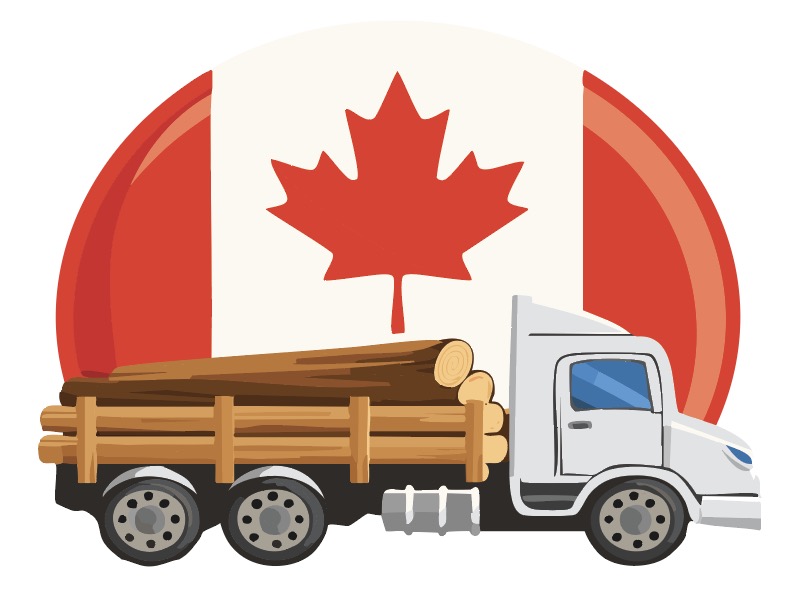


 Canada’s forest products sector strongly opposes the US administration’s decision to impose additional punitive tariffs not only on softwood lumber but also on derivative products, including furniture and kitchen cabinets. The targeting of Canada’s forestry products under Section 232 of the Trade Expansion Act is unjustified and disregards decades of evidence and cooperation that confirm Canadian forest products strengthen, rather than threaten, US national security. This broad action further undermines a deeply integrated North American supply chain that supports housing affordability, infrastructure, manufacturing, and shared prosperity and security on both sides of the border. …The new Section 232 tariffs pushes the total duty burden to over 45%. This compounds pressure, distorts markets, threatens jobs on both sides of the border, and escalates trade tensions. …This misguided move risks raising housing costs in the United States and undermines the integrated trade relationship that has provided jobs, investment, and prosperity in both countries,” said Nighbor.
Canada’s forest products sector strongly opposes the US administration’s decision to impose additional punitive tariffs not only on softwood lumber but also on derivative products, including furniture and kitchen cabinets. The targeting of Canada’s forestry products under Section 232 of the Trade Expansion Act is unjustified and disregards decades of evidence and cooperation that confirm Canadian forest products strengthen, rather than threaten, US national security. This broad action further undermines a deeply integrated North American supply chain that supports housing affordability, infrastructure, manufacturing, and shared prosperity and security on both sides of the border. …The new Section 232 tariffs pushes the total duty burden to over 45%. This compounds pressure, distorts markets, threatens jobs on both sides of the border, and escalates trade tensions. …This misguided move risks raising housing costs in the United States and undermines the integrated trade relationship that has provided jobs, investment, and prosperity in both countries,” said Nighbor.


 PRINCE ALBERT, Saskatchewan — “It’s taking way too long, and harder than we were hoping, but we have not given up.” That’s the message being delivered by those involved with One Sky Forestry Products‘ OSB mill project planned for Prince Albert. Last week, the Saskatchewan NDP said the mill was the latest in a string of major economic projects delayed or cancelled under a Sask. Party government. …However, a source at the OSB mill project said while they were in somewhat of a holding pattern because of the trade uncertainty with the US, the board of directors had a meeting last week and made the unanimous decision not to cancel or shelve the project, but instead look at ways to move it along. …They added the timing of the project that was supposed to be completed in 2027 and provide 700 jobs, will depend on whether they can tap into financing support sooner rather than later.
PRINCE ALBERT, Saskatchewan — “It’s taking way too long, and harder than we were hoping, but we have not given up.” That’s the message being delivered by those involved with One Sky Forestry Products‘ OSB mill project planned for Prince Albert. Last week, the Saskatchewan NDP said the mill was the latest in a string of major economic projects delayed or cancelled under a Sask. Party government. …However, a source at the OSB mill project said while they were in somewhat of a holding pattern because of the trade uncertainty with the US, the board of directors had a meeting last week and made the unanimous decision not to cancel or shelve the project, but instead look at ways to move it along. …They added the timing of the project that was supposed to be completed in 2027 and provide 700 jobs, will depend on whether they can tap into financing support sooner rather than later.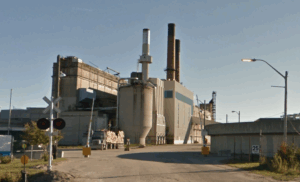 ONTARIO — Upper levels of government have reached funding agreements to support the Town of Kapuskasing’s Paper Mill, averting a planned closure and providing what local leaders are calling “a critical step” toward securing the region’s economic future. Kap Paper announced the newfound support in a social media post on Friday evening. “Next week, we’ll be working out the details for a restart plan,” the post said, adding that updates would be shared “as soon as everything is confirmed.” Kapuskasing Mayor Dave Plourde, called the deal a “critical step forward for Kapuskasing and the entire region,” in a statement posted to the town’s social media page. …“We now have a second chance – a window of opportunity to come together, calmly and deliberately, to build a plan for modernization and long-term competitiveness,” said Plourde …“Today, I am pleased to confirm that both the federal and provincial governments have agreed to provide support.”
ONTARIO — Upper levels of government have reached funding agreements to support the Town of Kapuskasing’s Paper Mill, averting a planned closure and providing what local leaders are calling “a critical step” toward securing the region’s economic future. Kap Paper announced the newfound support in a social media post on Friday evening. “Next week, we’ll be working out the details for a restart plan,” the post said, adding that updates would be shared “as soon as everything is confirmed.” Kapuskasing Mayor Dave Plourde, called the deal a “critical step forward for Kapuskasing and the entire region,” in a statement posted to the town’s social media page. …“We now have a second chance – a window of opportunity to come together, calmly and deliberately, to build a plan for modernization and long-term competitiveness,” said Plourde …“Today, I am pleased to confirm that both the federal and provincial governments have agreed to provide support.”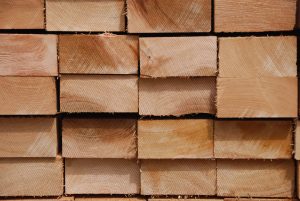 Companies reliant on New Brunswick’s softwood lumber industry are bracing for hard times after US President Trump announced new tariffs on Sept. 30. …In a letter to Prime Minister Mark Carney, New Brunswick Premier Susan Holt pleaded for the federal government to make softwood lumber tariffs a top priority. “In some communities in New Brunswick, one in every 11 workers depends directly on forest products,” Holt wrote. …Ron Marcolin, the New Brunswick vice-president with Canadian Manufacturers and Exporters, said the latest tariffs and duties are a big deal in a long-running drama over softwood lumber. …While New Brunswick may largely rely on the American market, Marcolin said Americans also rely on New Brunswick’s products. …”The thing is, too, they realize their product is inferior. Their softwood lumber is not as good as a Canadian stick of lumber.”
Companies reliant on New Brunswick’s softwood lumber industry are bracing for hard times after US President Trump announced new tariffs on Sept. 30. …In a letter to Prime Minister Mark Carney, New Brunswick Premier Susan Holt pleaded for the federal government to make softwood lumber tariffs a top priority. “In some communities in New Brunswick, one in every 11 workers depends directly on forest products,” Holt wrote. …Ron Marcolin, the New Brunswick vice-president with Canadian Manufacturers and Exporters, said the latest tariffs and duties are a big deal in a long-running drama over softwood lumber. …While New Brunswick may largely rely on the American market, Marcolin said Americans also rely on New Brunswick’s products. …”The thing is, too, they realize their product is inferior. Their softwood lumber is not as good as a Canadian stick of lumber.”



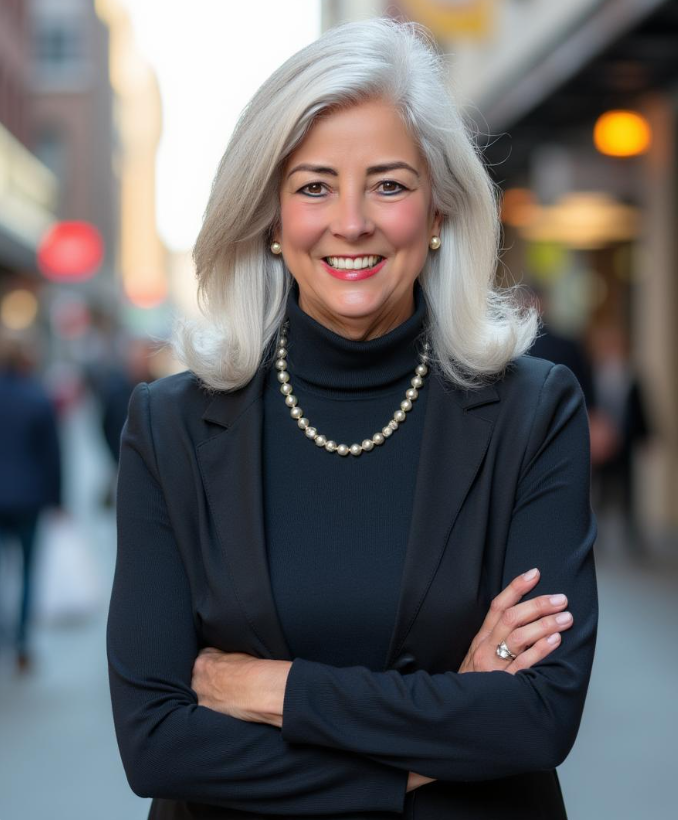


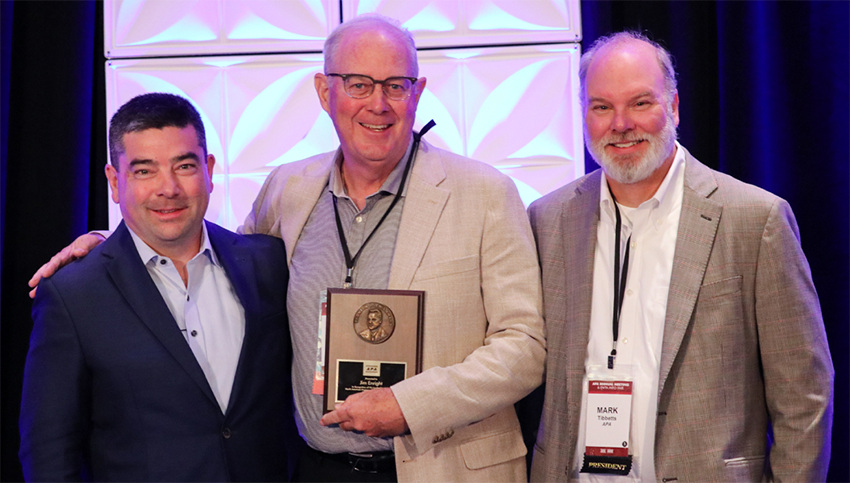
 WASHINGTON, D.C. — On Oct. 1, 2025, nine presidents and CEOs representing American manufacturers of hardwood plywood, engineered wood flooring, and hardwood veneer asked President Trump to add their products to the recently announced Section 232 tariffs on wood products. The current 232 tariff proposal focuses on cabinets, vanities, lumber, upholstered furniture, and other products. Section 232 tariffs are trade restrictions, such as import duties, that the President of the United States can impose on goods that are found to threaten national security. According to the group of companies, more than 100,000 American manufacturing jobs are threatened by the “flood of dumped and subsidized decorative hardwood product imports from outside of North America.” The group pointed to the news that Roseburg Forest Products had closed its last hardwood plywood mill and exited the hardwood plywood market as a result of these imports, which the company said dominate 80% of the U.S. market.
WASHINGTON, D.C. — On Oct. 1, 2025, nine presidents and CEOs representing American manufacturers of hardwood plywood, engineered wood flooring, and hardwood veneer asked President Trump to add their products to the recently announced Section 232 tariffs on wood products. The current 232 tariff proposal focuses on cabinets, vanities, lumber, upholstered furniture, and other products. Section 232 tariffs are trade restrictions, such as import duties, that the President of the United States can impose on goods that are found to threaten national security. According to the group of companies, more than 100,000 American manufacturing jobs are threatened by the “flood of dumped and subsidized decorative hardwood product imports from outside of North America.” The group pointed to the news that Roseburg Forest Products had closed its last hardwood plywood mill and exited the hardwood plywood market as a result of these imports, which the company said dominate 80% of the U.S. market.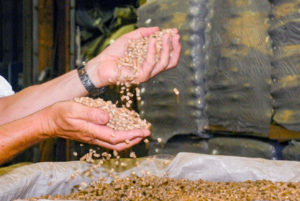 Much of the federal government shutdown in the early hours of Oct. 1 after federal lawmakers failed to reach a funding deal. If the shutdown persists, work related to federal data reporting, rulemakings and other regulatory initiatives could face delays. Ahead of the shutdown, many federal agencies published contingency plans on how work at those agencies may be impacted in the short term. …The USDA is expected to furlough 42,256 of its 85,907 employees, equating to more than 49% of the agency’s workforce. Data products and website updates offered by the USDA’s National Agricultural Statistics Service and Foreign Agricultural Service are among agency activities that are expected to cease during the funding lapse. …FAS also publishes a variety of data of interest to bioenergy producers, including monthly export data on ethanol, distillers grains, biodiesel and wood pellets. FAS also publishes reports that provide insight on foreign markets for biofuels and wood pellets.
Much of the federal government shutdown in the early hours of Oct. 1 after federal lawmakers failed to reach a funding deal. If the shutdown persists, work related to federal data reporting, rulemakings and other regulatory initiatives could face delays. Ahead of the shutdown, many federal agencies published contingency plans on how work at those agencies may be impacted in the short term. …The USDA is expected to furlough 42,256 of its 85,907 employees, equating to more than 49% of the agency’s workforce. Data products and website updates offered by the USDA’s National Agricultural Statistics Service and Foreign Agricultural Service are among agency activities that are expected to cease during the funding lapse. …FAS also publishes a variety of data of interest to bioenergy producers, including monthly export data on ethanol, distillers grains, biodiesel and wood pellets. FAS also publishes reports that provide insight on foreign markets for biofuels and wood pellets.  The Trump administration on Monday announced tariffs on imported wood products, targeting softwood lumber, timber, kitchen cabinets, vanities and upholstered furniture. …Trump’s proclamation said wood product imports were weakening the US economy, resulting in a persistent threat to the US supply chains and harming the domestic wood industry. “Because of the state of the United States wood industry, the US may be unable to meet demands for wood products that are crucial to the national defense and critical infrastructure,” the proclamation said. …Critics of the tariffs have voiced concern that the new duties will inflate costs for American consumers and builders. Former US Rep. Matt Cartwright, (D-Pennsylvania), said safety will suffer as a result of the new tariff on imports of trucks. …“A lot of these companies are already on shoestring budgets, and unfortunately the first thing that gets cut when costs go up is safety,” Cartwright said.
The Trump administration on Monday announced tariffs on imported wood products, targeting softwood lumber, timber, kitchen cabinets, vanities and upholstered furniture. …Trump’s proclamation said wood product imports were weakening the US economy, resulting in a persistent threat to the US supply chains and harming the domestic wood industry. “Because of the state of the United States wood industry, the US may be unable to meet demands for wood products that are crucial to the national defense and critical infrastructure,” the proclamation said. …Critics of the tariffs have voiced concern that the new duties will inflate costs for American consumers and builders. Former US Rep. Matt Cartwright, (D-Pennsylvania), said safety will suffer as a result of the new tariff on imports of trucks. …“A lot of these companies are already on shoestring budgets, and unfortunately the first thing that gets cut when costs go up is safety,” Cartwright said.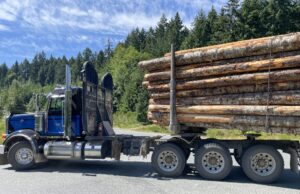 NEW ZEALAND — News that US President Trump imposed a tariff of 10 percent on imported timber has come as a relief to industry, which expected a higher figure. Mark Ross, chief executive of the Wood Processors and Manufacturers Association, said it was a relief as they thought it would be higher. “We’ve been working through the essential impact of a tariff on our products since March this year so it wasn’t a shock because we were, at one point, expecting a 50% tariff. “So 10% is a bit of relief. It is still going to have a financial impact on the wood processing industry in New Zealand. …Ross said they were working with exporters to work out how to handle the extra costs. …Ross said the United States was New Zealand’s third-largest export market and continued to grow.
NEW ZEALAND — News that US President Trump imposed a tariff of 10 percent on imported timber has come as a relief to industry, which expected a higher figure. Mark Ross, chief executive of the Wood Processors and Manufacturers Association, said it was a relief as they thought it would be higher. “We’ve been working through the essential impact of a tariff on our products since March this year so it wasn’t a shock because we were, at one point, expecting a 50% tariff. “So 10% is a bit of relief. It is still going to have a financial impact on the wood processing industry in New Zealand. …Ross said they were working with exporters to work out how to handle the extra costs. …Ross said the United States was New Zealand’s third-largest export market and continued to grow.


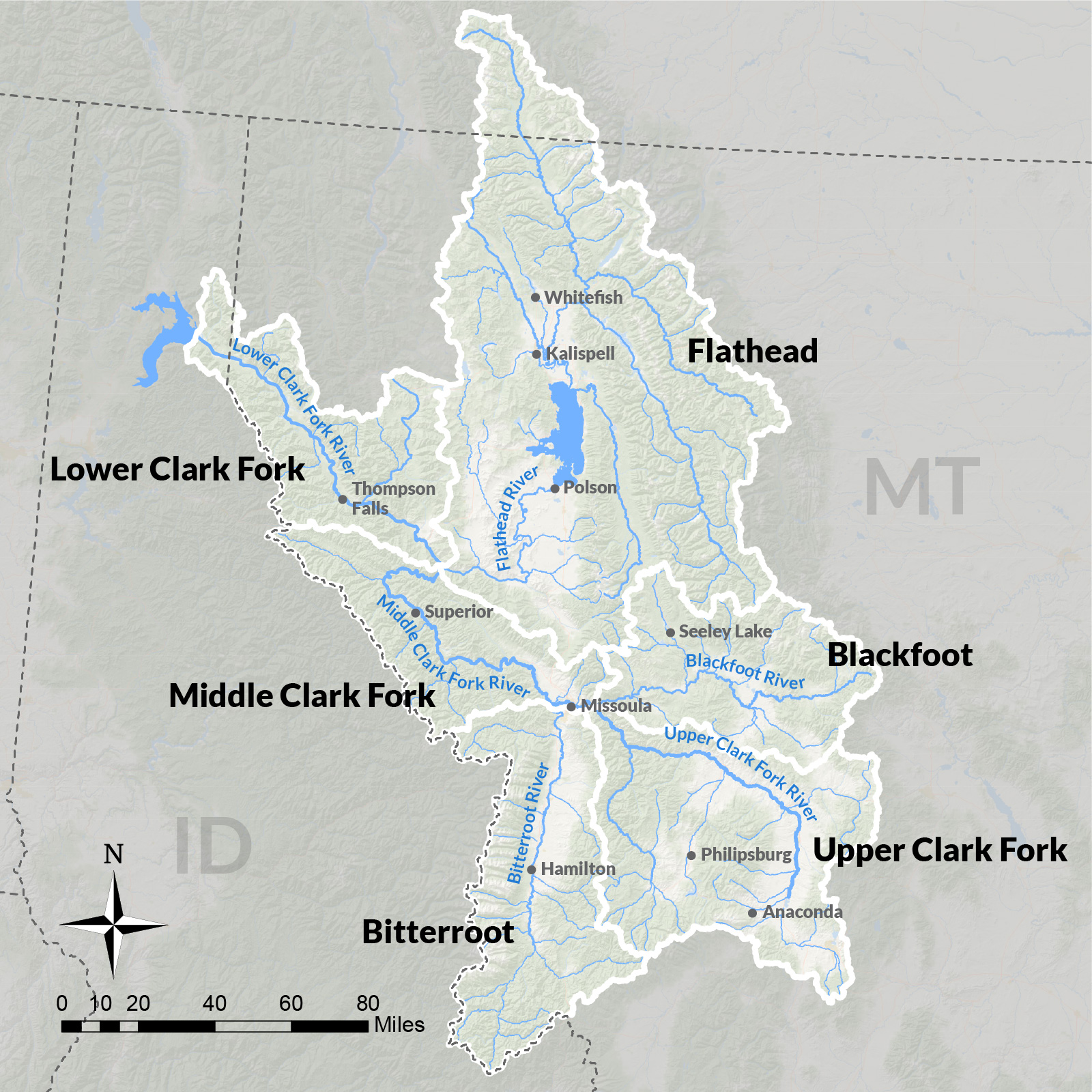
 On 31 July 2025, Metsä Group announced it would launch the planning of a EUR 300 million cost savings and profit improvement programme. Planning is now complete, and Metsä Group will initiate statutory negotiations concerning its personnel as part of it. “Our profitability has been undermined by three factors. First, increased uncertainties in global trade have reduced demand for our products. Second, changes in exchange rates have weakened our result and will continue to do so. Third, the increase in raw material costs and the general cost level has eroded our profitability,” says Jussi Vanhanen, President and CEO of Metsä Group. …According to preliminary assessments, the planned measures may lead to a permanent reduction of 800 permanent jobs. A significant share – 540 jobs – are expected to be in Finland. In addition to redundancies, the planned changes may lead to changes in duties.
On 31 July 2025, Metsä Group announced it would launch the planning of a EUR 300 million cost savings and profit improvement programme. Planning is now complete, and Metsä Group will initiate statutory negotiations concerning its personnel as part of it. “Our profitability has been undermined by three factors. First, increased uncertainties in global trade have reduced demand for our products. Second, changes in exchange rates have weakened our result and will continue to do so. Third, the increase in raw material costs and the general cost level has eroded our profitability,” says Jussi Vanhanen, President and CEO of Metsä Group. …According to preliminary assessments, the planned measures may lead to a permanent reduction of 800 permanent jobs. A significant share – 540 jobs – are expected to be in Finland. In addition to redundancies, the planned changes may lead to changes in duties.
